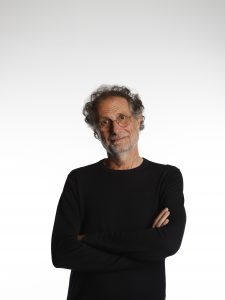
We inaugurate this new section of interviews by chatting with Ramón Arteman, director of Metropolitana and of the Association of Postproduction Companies, which now joins the Association of Advertising Film Producers (APCP). We spoke to him about the work carried out by the AEPP and the future prospects in the face of unification.
 1. Could you tell us briefly about the origin of the AEPP and the main objectives that motivated its creation?
1. Could you tell us briefly about the origin of the AEPP and the main objectives that motivated its creation?
The AEPP was born with the intention of uniting post-production companies in Spain to create a space for collaboration and representation in the face of the common challenges of the sector. From the beginning, the main objective was to strengthen the industry, defend the interests of our companies and ensure that standards of quality and professionalism were always high. We wanted to give visibility to the crucial role of post-production in audiovisual creation, something that was often relegated to the background.
2. Over the years, how has AEPP evolved in terms of membership, areas of work and featured projects?
AEPP has grown in membership but especially in diversity, coming to represent a wide range of studios specialising in visual effects, colour and other key areas of post-production. We have expanded our areas of work, focusing not only on technical and artistic development, but also on issues such as training, sustainability and adaptation to new technologies. Among the outstanding projects, we have carried out initiatives for the standardisation of processes, professional training and campaigns to raise awareness of the value of post-production in the audiovisual chain.
3. How would you describe the current situation of the post-production industry in Spain and the challenges it faces on the national and international scene?
The post-production industry in Spain is at a moment of great dynamism, but it also faces important challenges. The quality of talent in Spain is internationally recognised, and more and more foreign projects are interested in working here. However, we are also dealing with strong global competition, the need to constantly adapt our infrastructures to emerging technologies such as artificial intelligence, and increasing quality expectations with ever tighter deadlines. Domestically, the main challenge remains educating the audiovisual sector about the value that post production brings and fighting for budgets that reflect that value.
4. Along these lines, what impact do you think the AEPP has had on the post-production industry in Spain? Are there any specific achievements you would like to highlight?
The AEPP has been fundamental in bringing the sector together and raising its standards. An important achievement was the creation of best practice guidelines that today are a reference in the industry. In addition, we have worked closely with other associations and bodies to ensure that our needs are represented in public policy. But, above all, I think the biggest impact has been to strengthen the perception of the sector, demonstrating that post-production is not just a matter of the industry.
5. What motivated this decision to merge the AEPP with the APCP?
This decision responds to a strategic vision. The production and post-production industries are intrinsically linked, and joining forces with the Association of Advertising Film Producers (APCP) allows us to create a stronger common front. The unification aims to optimise resources, improve representation of the sector and promote joint projects that benefit both production and post-production companies. In essence, we share similar objectives and believe that together we can make a greater impact.
6. What are your main expectations for this union?
We hope that this union will be a catalyst for positive change in the industry. We want to improve dialogue with public and private institutions, generate more business opportunities and set higher standards for the entire audiovisual value chain. We also seek to foster innovation and strengthen the international presence of our companies, taking advantage of the synergies between production and post-production.
7. What fundamental changes are expected with this unification and what new opportunities do you think will be generated for companies and professionals in the sector?
With the unification, we expect a greater capacity for negotiation and representation, both nationally and internationally. It will open up opportunities to work on larger and more ambitious projects and foster a more collaborative ecosystem. In addition, this union will allow to address more efficiently challenges such as digitalisation, sustainability and lifelong learning, benefiting all professionals in the sector.
8. What message would you like to convey to the members of both associations and to industry professionals in general about this new chapter?
This is an exciting time full of possibilities. The unification not only strengthens our position as an industry, but also sends a clear message of unity and cooperation. To the members of both associations and to the industry professionals, I say: together we are stronger. Let us seize this opportunity to build a stronger, more innovative and internationally recognised future. We want to continue to be a benchmark for quality and creativity, and this union is a key step on that path.



